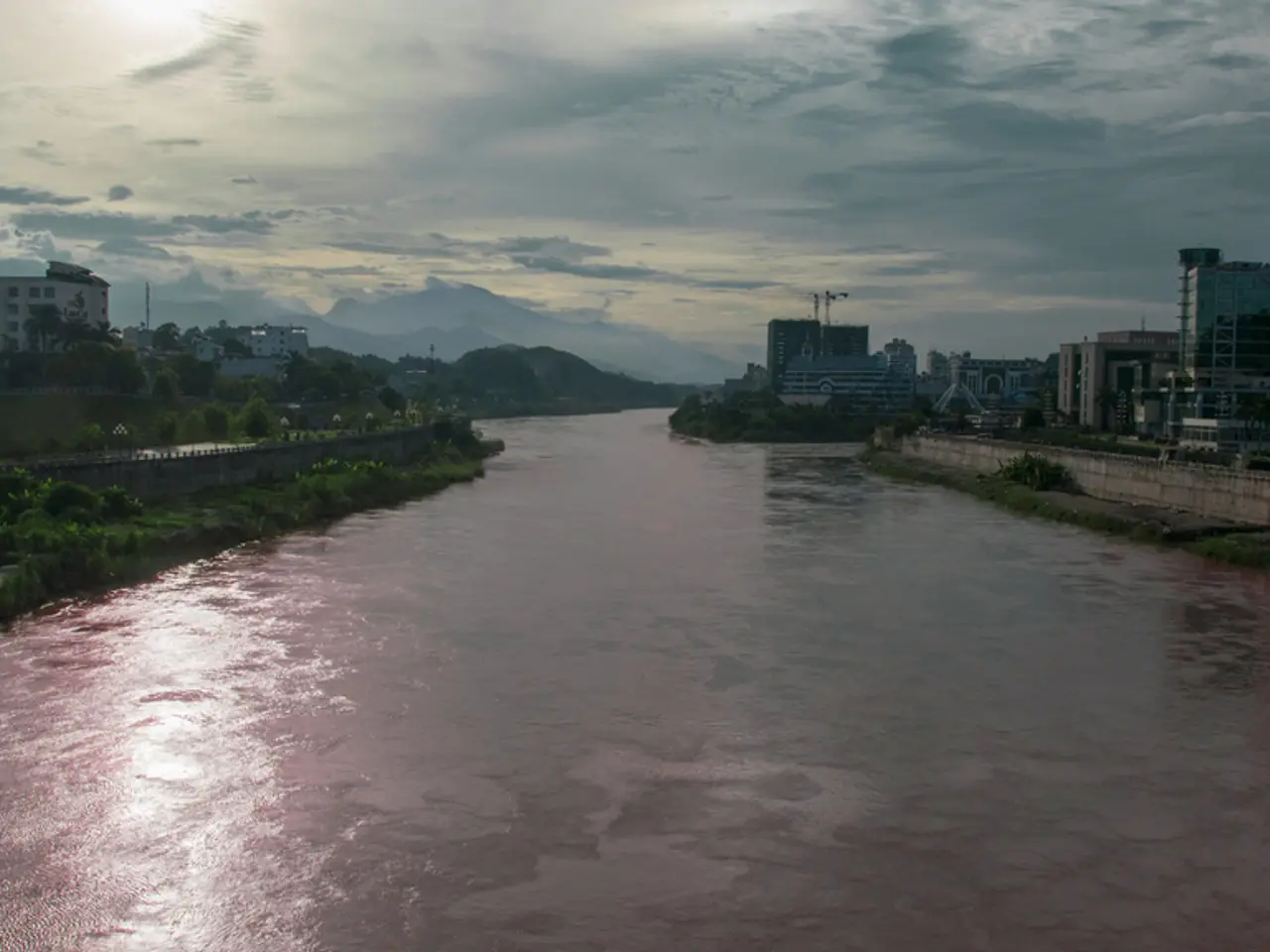Massive Ethiopian Dam Set to Provide Economic Enhancement
The Grand Ethiopian Renaissance Dam (GERD), Africa's largest hydroelectric facility, is set to revolutionise Ethiopia's energy landscape and contribute significantly to its economic development. Located on the Blue Nile near the Sudanese border and spanning nearly two kilometres, the dam is expected to hold 74 billion cubic metres of water and generate 5,000 megawatts of electricity, more than doubling Ethiopia's current capacity.
The GERD is anticipated to lead to the development of modern, vibrant towns in the surrounding areas. Around the dam, a new city and several modern towns have emerged, featuring residential camps for up to 10,000 people, schools, clinics, hospitals, roads, and recreational facilities. This transformation has turned a remote, infrastructure-poor region in Benishangul-Gumuz into a bustling urban area with healthcare, education, and economic opportunities linked to the dam's development.
The dam is expected to play a crucial role in addressing Ethiopia's energy needs for its growing electric vehicle (EV) fleet. Ethiopia aims to replace almost all gasoline and diesel vehicles by EVs by 2030, and the GERD will undoubtedly support this transition. EVs are expected to consume a significant amount of power as the fleet grows, and the GERD will be instrumental in meeting this demand.
The GERD is also anticipated to help Ethiopia address its chronic lack of foreign currency. The dam is estimated to add $1 billion to Ethiopia's economy each year, providing a much-needed boost to the country's finances.
Moreover, the GERD is seen as a boost to tourism and fishing in the dammed waters. Tigabu Atalo, an analyst in Addis Ababa, believes that the dam will attract tourists and fishermen, contributing to the growth of these industries.
Samson Berhane, an economic analyst based in Ethiopia, emphasises the importance of the dam in improving access to electricity for citizens and empowering industries. Currently, around 45% of Ethiopia's 130 million inhabitants do not have access to electricity, according to World Bank figures from 2023. The dam is expected to address this issue, providing a reliable source of power to millions of Ethiopians.
The GERD is also expected to support the growing demand for power across east Africa. Power lines from the GERD are expected to stretch as far as Tanzania, providing a much-needed boost to the region's energy infrastructure.
Experts view the GERD as an "energy revolution" with potential benefits for industries, tourism, and fishing in the dammed waters. The dam is expected to help Ethiopia address its energy needs, boost its economy, and improve the lives of its citizens.
Read also:
- visionary women of WearCheck spearheading technological advancements and catalyzing transformations
- Recognition of Exceptional Patient Care: Top Staff Honored by Medical Center Board
- A continuous command instructing an entity to halts all actions, repeated numerous times.
- Oxidative Stress in Sperm Abnormalities: Impact of Reactive Oxygen Species (ROS) on Sperm Harm








